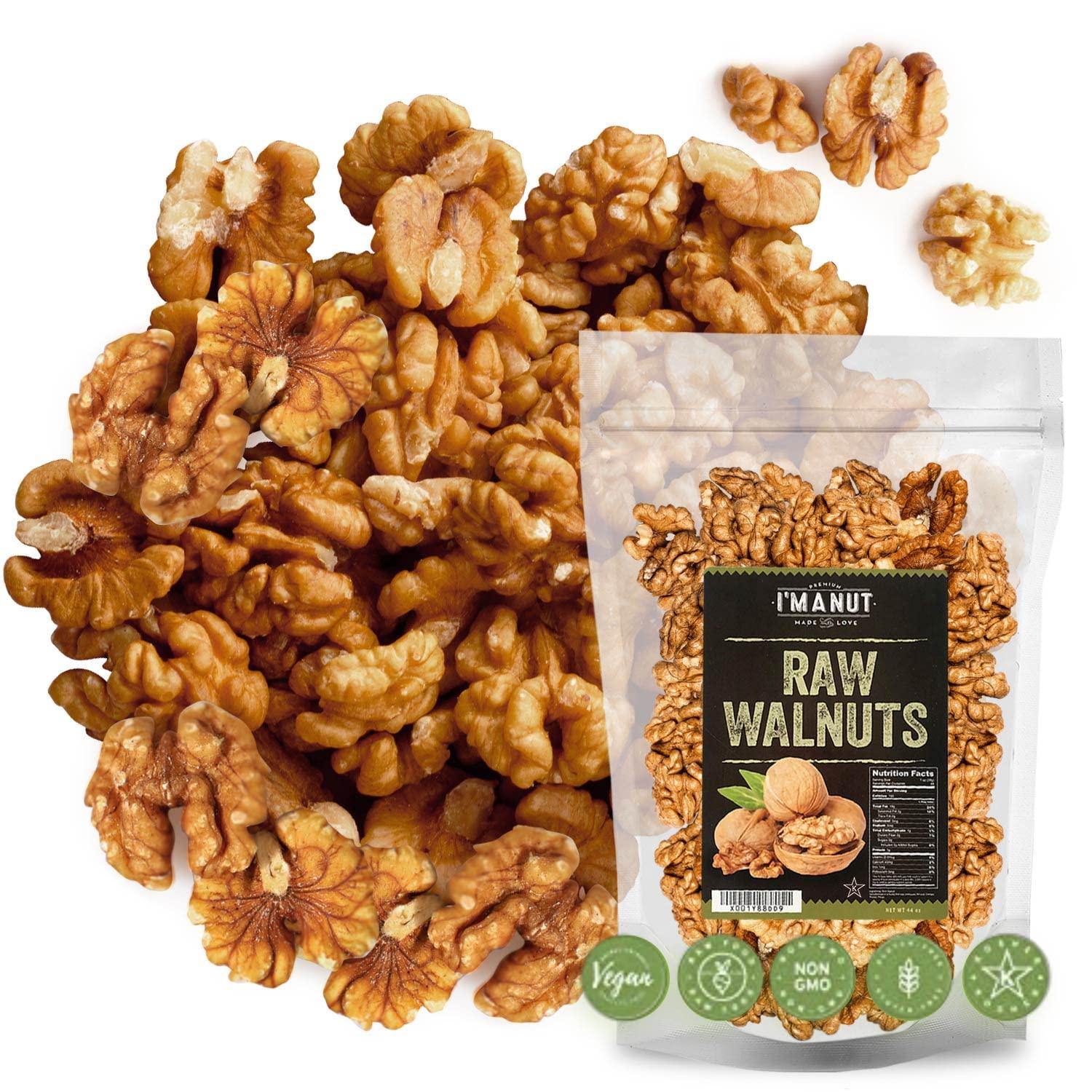In the realm of nutrition, few foods stand out quite like the humble walnut—a versatile nut that packs a powerful punch of health benefits. Among its impressive attributes, walnuts are celebrated for their rich content of omega-3 fatty acids, notably alpha-linolenic acid (ALA). This essential fat plays a pivotal role in promoting brain health and cognitive function, making walnuts not just a tasty snack, but also a vital contributor to our overall well-being. As we delve into the omega-3 profile of raw walnuts, we uncover a treasure trove of insights into how these nutrient-dense morsels can enhance brain health and possibly stave off cognitive decline. Join us as we explore the interesting intersection of nutrition science and neurological wellness, unveiling the significance of ALA in walnuts and its implications for a healthier brain.
Understanding ALA: The Omega-3 Profile of Raw Walnuts
The omega-3 fatty acids in raw walnuts primarily consist of alpha-linolenic acid (ALA),a plant-based essential fatty acid known for its numerous health benefits. Unlike the omega-3s found in fatty fish, which are primarily eicosapentaenoic acid (EPA) and docosahexaenoic acid (DHA), ALA plays a unique role, especially for those following a vegetarian or vegan diet. Raw walnuts are not only a rich source of ALA but also offer the advantage of being packed with antioxidants and healthy fats. This unique composition contributes considerably to maintaining brain health and cognitive function, making them a worthwhile addition to any diet aimed at supporting overall well-being.
research indicates that a higher intake of ALA can play a protective role against cognitive decline and support brain function over time. The recommended daily intake of ALA for adults varies based on dietary needs, but incorporating a handful of raw walnuts into your daily routine can help you meet those needs easily. Consider the following benefits associated with ALA from walnuts:
- Enhanced Cognitive Function: ALA aids in the maintenance of neuronal health.
- Anti-Inflammatory Properties: Helps reduce inflammation, which is linked to neurodegenerative diseases.
- Heart Health: Supports cardiovascular health, crucial for optimal brain function.
| Component | Amount per 100g |
|---|---|
| Alpha-Linolenic Acid (ALA) | 9g |
| Total Omega-3 Fatty Acids | 10g |
| Calories | 654 |

The Impact of ALA on Cognitive Function and Brain Health
The inclusion of alpha-linolenic acid (ALA), a plant-based omega-3 fatty acid found abundantly in raw walnuts, has been associated with notable improvements in cognitive function and overall brain health. Research indicates that ALA can potentially enhance neuroprotection, promoting the integrity of neuronal membranes and reducing inflammation in the brain. This process is paramount for maintaining cognitive abilities as we age, as it may delay the onset of age-related cognitive decline and lower the risk of neurodegenerative diseases.
Several studies have suggested that dietary intake of ALA-rich foods like walnuts correlates with better memory and learning capabilities. These findings can be summarized in the following key benefits:
- Improved synaptic Plasticity: ALA contributes to enhanced neural communication.
- Reduced Anxiety and Depression Symptoms: Omega-3 fatty acids,including ALA,have mood-stabilizing effects.
- Support for Neurogenesis: ALA promotes the production of new neurons, vital for memory formation.
In terms of nutritional value,a serving of 28 grams (approximately 7 walnuts) can provide a ample amount of ALA necessary for cognitive health. The following table illustrates the ALA content in raw walnuts compared to other common sources of omega-3 fatty acids:
| Food Source | Omega-3 ALA Content (grams per serving) |
|---|---|
| Raw Walnuts (28g) | 2.5 |
| Flaxseeds (28g) | 6.4 |
| Chia Seeds (28g) | 5.1 |
| Canola Oil (1 tbsp) | 1.3 |

Incorporating Raw Walnuts into Your Diet for Optimal Benefits
Raw walnuts are an excellent addition to a balanced diet, primarily due to their impressive content of alpha-linolenic acid (ALA), a plant-based omega-3 fatty acid. Incorporating these nuts into your daily meals can provide notable health benefits, especially for brain health. Their rich nutrient profile not only supports cognitive function but also promotes cardiovascular health. Integrating walnuts can be both simple and enjoyable; consider these methods:
- Add to smoothies: Blend a handful into your morning smoothie for a nutritious boost.
- Top your salads: Sprinkle chopped walnuts on salads to enhance both texture and nutritional value.
- Snack on them raw: A small serving as a healthy snack can curb cravings while providing essential omega-3s.
Studies have shown a correlation between regular consumption of walnuts and improved brain health, particularly in areas related to memory and mental clarity. They are also known to aid in reducing inflammation and oxidative stress, contributing to overall cognitive resilience. To visualize the ALA content in walnuts compared to other nuts, take a look at the following table:
| Nuts | ALA Content (per 100g) |
|---|---|
| Walnuts | 9.08g |
| flaxseeds | 22.81g |
| Chia Seeds | 17.83g |
| Almonds | 0.02g |

Exploring the Science Behind Omega-3 Fatty Acids and mental Well-being
The complexity of our brain is matched only by the multifaceted benefits of omega-3 fatty acids, particularly those derived from raw walnuts. These nuts are a potent source of alpha-linolenic acid (ALA), a type of omega-3 fatty acid that is essential for maintaining mental health. Not only does ALA participate in critical brain functions, but it also plays a significant role in regulating mood and emotional balance.Studies have shown that higher intake of omega-3 fatty acids is linked to a lower risk of depression and anxiety, largely due to their anti-inflammatory properties and their ability to promote neuroplasticity, the brain’s capability to adapt and reorganize itself.
To truly appreciate the impact of raw walnuts on cognitive health, consider their impressive ALA content:
| Serving Size | ALA Content (grams) |
|---|---|
| 1 ounce (28g) | 2.5 |
| 1/2 cup (65g) | 6.5 |
| 1 cup (100g) | 8.5 |
Incorporating raw walnuts into your diet not only enhances omega-3 intake but also contributes beneficial antioxidants and vitamins that support brain health. With regular consumption, you may experiance improvements in cognitive function, memory retention, and overall emotional resilience. To harness these benefits, consider enjoying walnuts in various forms—whether as a snack, sprinkled on salads, or blended into smoothies, ensuring your brain receives the nourishment it craves.
Insights and Conclusions
the exploration of raw walnuts reveals not just their rich flavor and delightful crunch but also their impressive profile of alpha-linolenic acid (ALA),a key omega-3 fatty acid that plays a significant role in supporting brain health. As we unveil the intricate relationship between this nutrient and cognitive function, it becomes clear that incorporating raw walnuts into our diets could serve as a simple yet effective strategy for enhancing mental well-being. So, whether you sprinkle them on your morning oatmeal, toss them into salads, or enjoy them by the handful as a snack, remember that with each bite, you are nourishing not just your body but also the fascinating complexities of your mind. Embrace the power of nature’s bounty, and let raw walnuts be a cornerstone of your journey toward optimal brain health.






